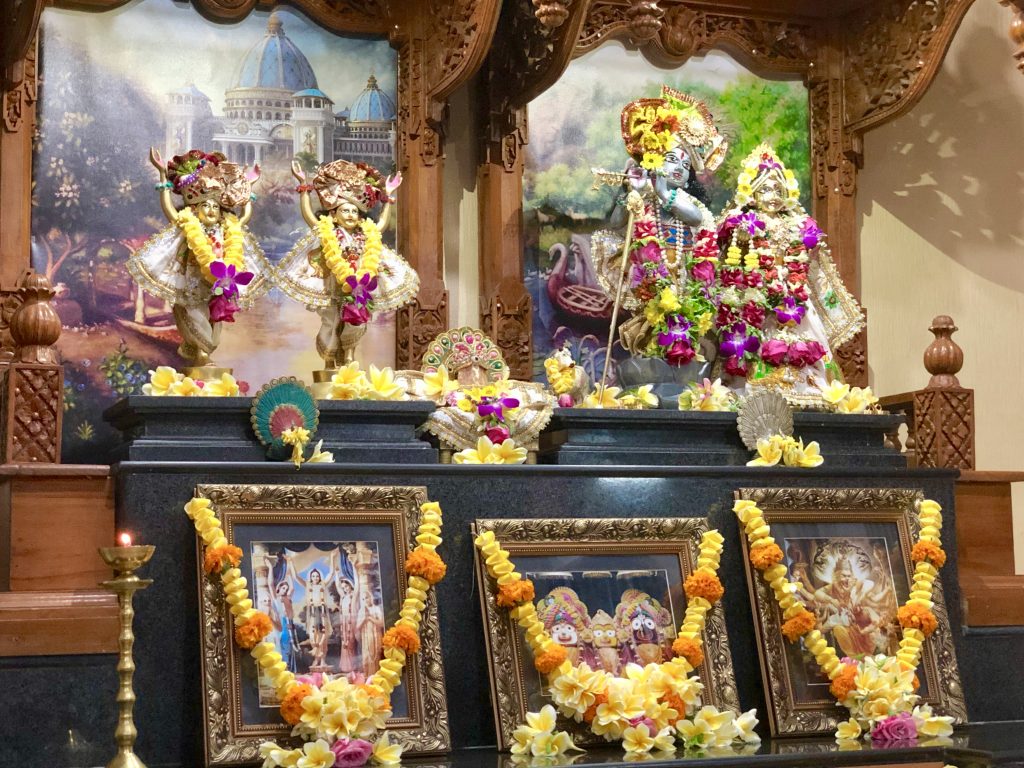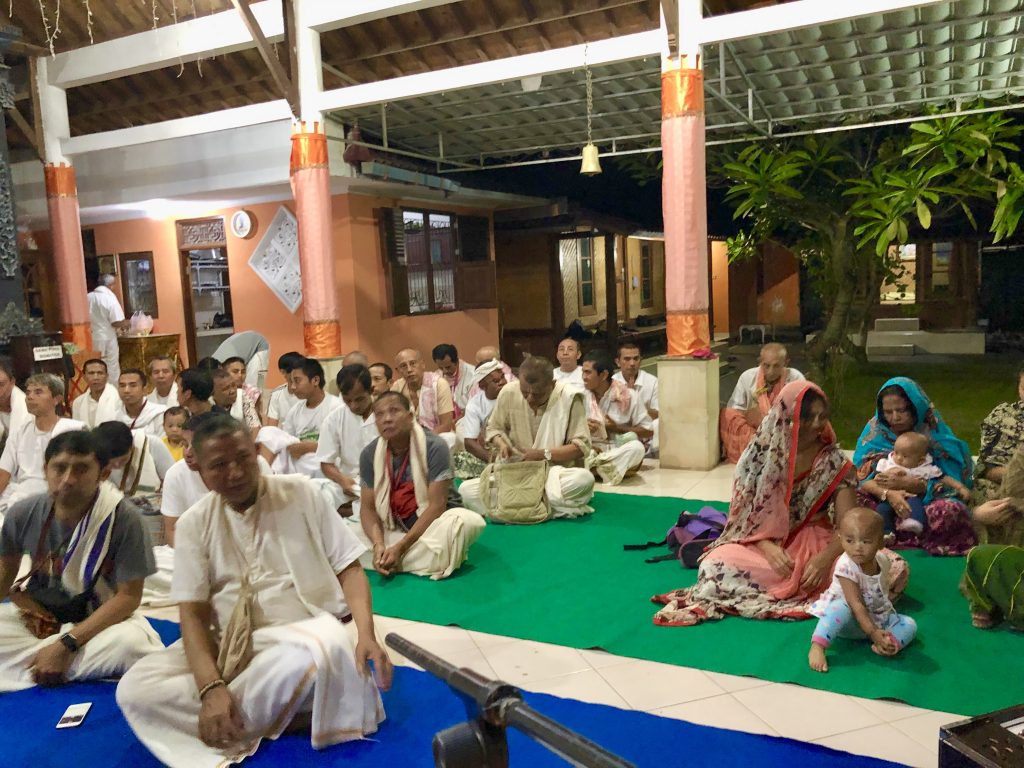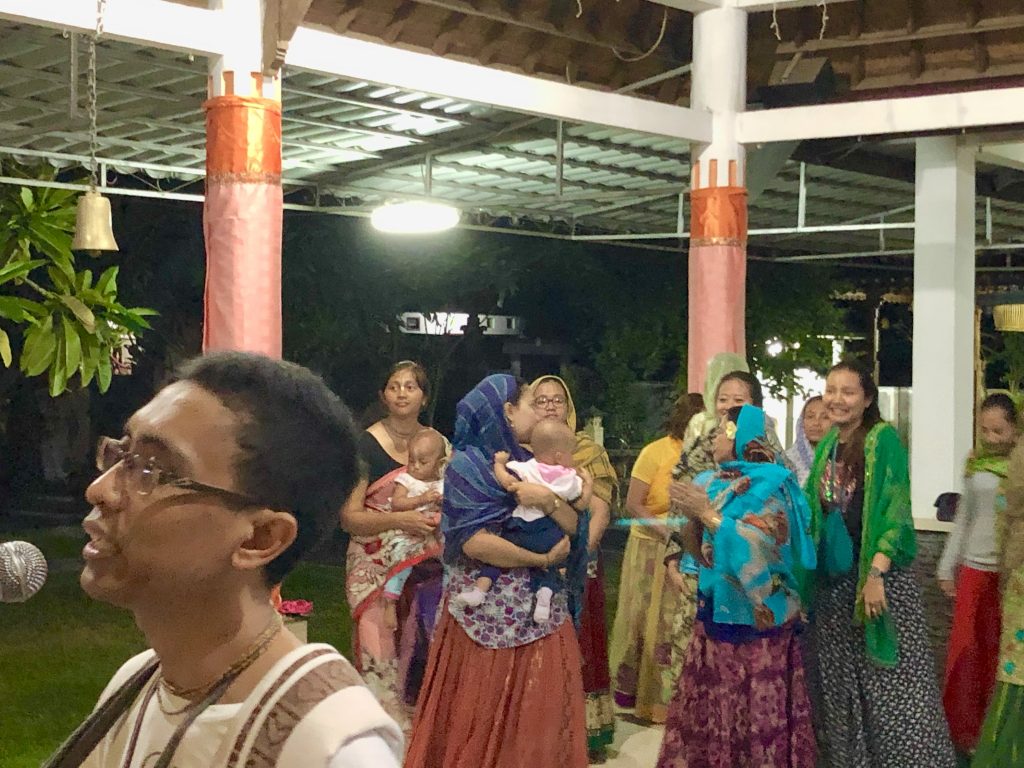 By Vijaya das
By Vijaya das Vaisesika Prabhu says that the initials ISV, which stand for ISKCON of Silicon Valley, also stand for "individual, spontaneous and voluntary service." These devotees were, in colloquial language, "fired up" in June. They did 47,082 book points, which means they were the No. 2 temple in the world and No. 1 in North America. I once asked Vaisesika whether he had had an exchange with Srila Prabhupada. He said he did. Prabhupada said to him, "Read my books." He took that instruction to heart and expanded on it by encouraging hundreds of other devotees to read the books. And on top of that, he inspires devotees worldwide to distribute millions of Srila Prabhupada's books, giving nondevotees the opportunity to read Prabhupada's books, too. He's a Vaikuntha man in our midst Continue reading "WSN June 2019 – World Sankirtan Newsletter – ISV No. 2 temple in the world and No. 1 in North America!
→ Dandavats"

 Sadbhuja Das: we have been working on installing the new Kailash on Srila Prabhupada's Samadhi. We are using the same reinforcements and methods that were applied to the Chakras for the TOVP, as well as the same Russian crew which are getting the job done. They are very glad to be back doing this service in total bliss.
Sadbhuja Das: we have been working on installing the new Kailash on Srila Prabhupada's Samadhi. We are using the same reinforcements and methods that were applied to the Chakras for the TOVP, as well as the same Russian crew which are getting the job done. They are very glad to be back doing this service in total bliss. By Kesava Krsna Dasa
By Kesava Krsna Dasa








 By Mayapur Sasi dasa
By Mayapur Sasi dasa





 The two Brown Swiss oxen you see running about, Dhruva Laddhu and Kalyan Tamal, were rescued from a dairy where they were living in tiny hutches and fed by a milk drip. Balaji, who is in many ISCOWP cow sanctuary videos, vlogged them moving from the back pasture to the front pasture where he found a surprise in the cow pasture!
The two Brown Swiss oxen you see running about, Dhruva Laddhu and Kalyan Tamal, were rescued from a dairy where they were living in tiny hutches and fed by a milk drip. Balaji, who is in many ISCOWP cow sanctuary videos, vlogged them moving from the back pasture to the front pasture where he found a surprise in the cow pasture!













 By Indradyumna Swami
By Indradyumna Swami
 Radha Selvester: We have had quite a few devotees experience the passing of loved ones – parent, spouse, sibling, or child. In spite of knowing that we are not these bodies and that the soul is eternal, it is still an emotional struggle to cope with the loss. It is also a logistical challenge to make funeral arrangements, deal with insurance, disperse the loved one’s properties, and so much more.
Radha Selvester: We have had quite a few devotees experience the passing of loved ones – parent, spouse, sibling, or child. In spite of knowing that we are not these bodies and that the soul is eternal, it is still an emotional struggle to cope with the loss. It is also a logistical challenge to make funeral arrangements, deal with insurance, disperse the loved one’s properties, and so much more. 


